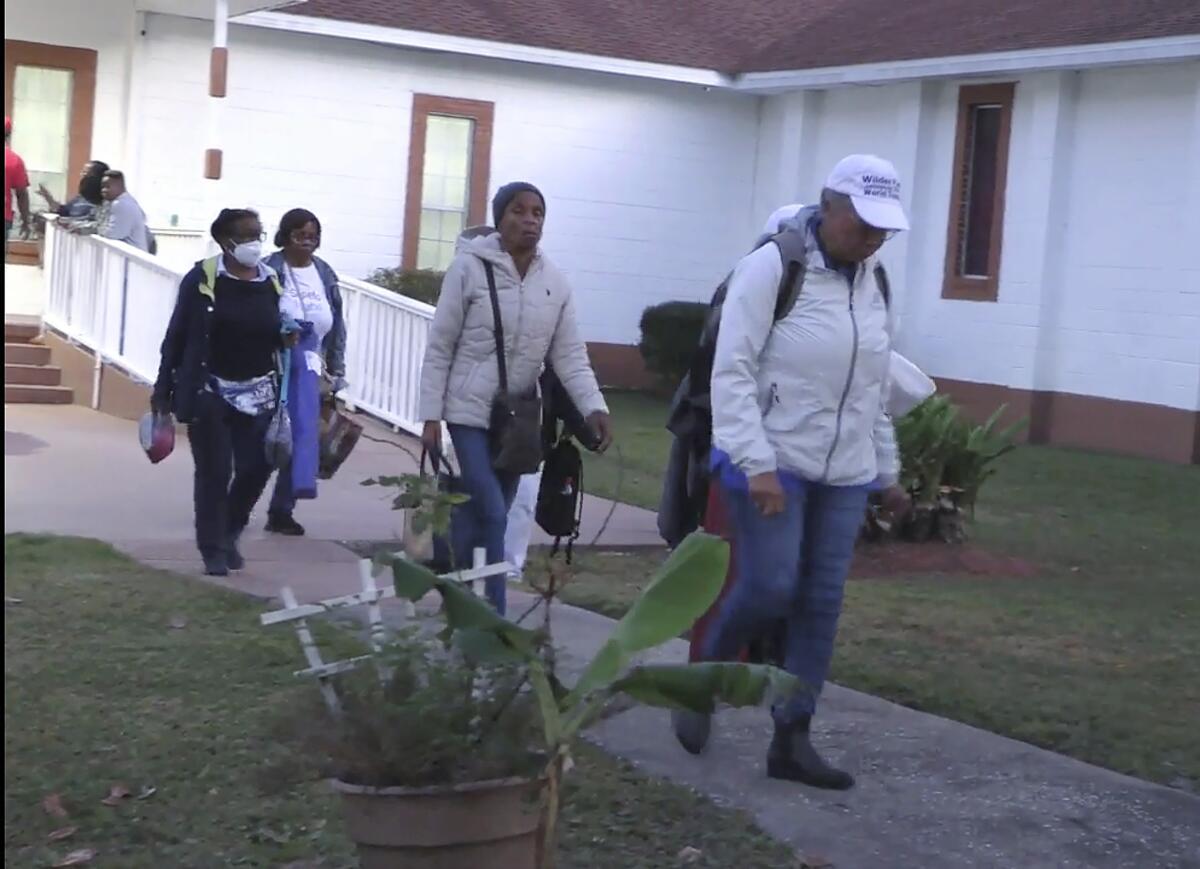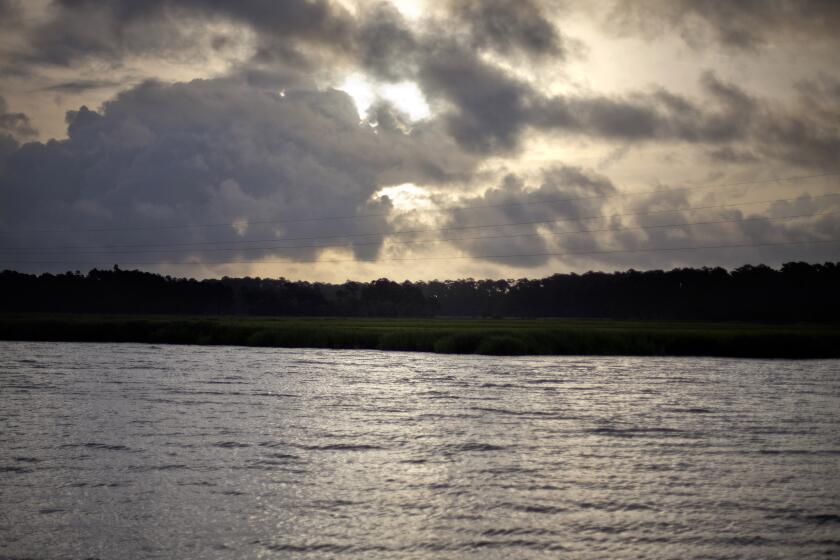Georgia authorities investigating ‘catastrophic failure’ of dock gangway that collapsed, killing 7

- Share via
SAVANNAH, Ga. — Georgia authorities said Sunday they are investigating the “catastrophic failure” of a dock gangway that collapsed and killed seven on Sapelo Island, where crowds had gathered for a fall celebration by the island’s tiny Gullah-Geechee community of Black slave descendants.
“It is a structural failure. There should be very, very little maintenance to an aluminum gangway like that, but we’ll see what the investigation unfolds,” Georgia Department of Natural Resources Commissioner Walter Rabon said at a news conference.
The gangway was installed in 2021, authorities said.
Rabon said three people remained hospitalized in critical condition from Saturday’s collapse.
Rabon said “upwards of 40 people” were on the gangway when the “catastrophic failure” occurred, and at least 20 people fell into the water. The gangway connected an outer dock where people board the ferry to another dock onshore.
The seven people killed weren’t residents of the island, Rabon said. Eight people were taken to hospitals, at least six of them were initially reported Saturday to have critical injuries.
The ferry dock was rebuilt after Georgia officials in October 2020 settled a federal lawsuit by residents of the tiny community of Hogg Hummock, who complained the state-operated ferry boats and docks they rely upon to travel between Sapelo Island and the mainland failed to meet federal accessibility standards for people with disabilities.
The state agreed to demolish and replace outdated docks while upgrading ferry boats to accommodate people in wheelchairs and those with impaired hearing. The state also paid a cash settlement of $750,000.
Crews from the U.S. Coast Guard, the McIntosh County Fire Department, the Georgia Department of Natural Resources and others searched the water, according to Natural Resources spokesperson Tyler Jones. The agency operates the dock and ferry boats that transport people between the island and the mainland.
A team of engineers and construction specialists were on site early Sunday to begin investigating why the walkway failed, Jones said.
“There was no collision” with a boat or anything else, Jones said. “The thing just collapsed. We don’t know why.”
Helicopters and boats with side-scanning sonar were used in the search, according to a Department of Natural Resources statement.
Among the dead was a chaplain for the state agency, Jones said.
Authorities say at least seven people were killed Saturday when part of a ferry dock collapsed on Georgia’s Sapelo Island.
President Biden said federal officials were ready to provide any assistance needed.
Sapelo Island is about 60 miles south of Savannah, reachable from the mainland by boat.
The deadly collapse happened as island residents, family members and tourists gathered for Cultural Day, an annual fall event spotlighting Hogg Hummock, home to a few dozen Black residents. The community with dirt roads and modest homes was founded after the Civil War by former slaves from the cotton plantation of Thomas Spalding.
Hogg Hummock’s slave descendants are extremely close, having been “bonded by family, bonded by history and bonded by struggle,” said Roger Lotson, the only Black member of the McIntosh County Board of Commissioners. His district includes Sapelo Island.
“Everyone is family, and everyone knows each other,” Lotson said. “In any tragedy, especially like this, they are all one. They’re all united. They all feel the same pain and the same hurt.”
Small communities descended from enslaved island populations in the South — known as Gullah, or Geechee in Georgia — are scattered along the coast from North Carolina to Florida. Scholars say their separation from the mainland caused residents to retain much of their African heritage, including their unique dialect and skills and crafts such as cast-net fishing and basket-weaving.
In 1996, Hogg Hummock, also known as Hog Hammock, was placed on the National Register of Historic Places, the official list of the United States’ treasured historic sites.
But the community’s population has been shrinking for decades, and some families have sold their land to outsiders who built vacation homes.
Tax increases and zoning changes by the local government in McIntosh County have been met by protests and lawsuits by Hogg Hummock residents and landowners. They have been battling for the last year to undo zoning changes approved by county commissioners in September 2023 that doubled the size of homes allowed in Hogg Hummock.
Residents say they fear larger homes will lead to tax increases that could force them to sell land that their families have held for generations.
Bynum and Pettus write for the Associated Press. Pettus reported from Jackson, Miss.
More to Read
Sign up for Essential California
The most important California stories and recommendations in your inbox every morning.
You may occasionally receive promotional content from the Los Angeles Times.











